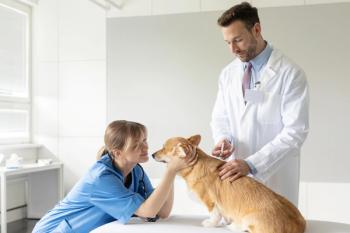
Form a deworming team with clients (sponsored by Intervet/Schering-Plough Animal Health)
Your clients understand that parasite control is important. But do they know that you need to be involved too?
With some things it's best to include the professionals. You may think you can install that new timing belt in your truck, but do you really trust your handiwork to hold up when you're cruising down the highway? You're usually better off consulting an expert. And the same is true of your clients when it comes to a deworming program for their horse.
Tracey O'Driscoll-Packer
According to Tracey O'Driscoll-Packer, an equine management consultant in Pismo Beach, Calif., too many horse owners rely on outdated or incomplete information. When dewormers became over-the-counter products in the 1980s, clients took medical matters into their own hands. "It created a misconception that parasite control is simple," O'Driscoll-Packer says. "We need to reel it in now and say, 'Parasite control is a form of medical treatment.'"
Draw up your game plan
The first step, O'Driscoll-Packer says, is to find out where your clients stand. Do they believe deworming is a simple task that doesn't require a veterinarian's input? Or are they overwhelmed with confusing information and reluctant to consider new methods? The key is to identify their general beliefs and proceed from there.
Valuable deworming resources
Next, help clients understand the changing face of deworming. "What was true 20 years ago isn't necessarily true now," O'Driscoll-Packer says. Protocols change, especially as concerns of resistance grow, and clients need to be aware of the risks. But talk about the benefits to the horse rather than pure science, O'Driscoll-Packer says. "That's the art of communication," she says, "to be thorough without being overly scientific."
Finally, develop a plan. Many clients prefer to administer dewormer themselves, but what happens when the horse spits some out? The client is left to decide whether to give an additional dose, and how much—no easy task. "That's not to say an owner shouldn't do their own worming, but the veterinarian needs to be involved," O'Driscoll-Packer says. Have the client administer the product one time in front of you so you're both confident he or she uses the right amount and the correct technique.
Also, set up a program of regular diagnostic fecals. This testing lets you identify which horses need to be dewormed and what drugs are still working—especially important for monitoring resistance. In this way you become an indispensable ally and diagnostician.
Communicate carefully with clients
The key is not to take management of the horse away from the owner—it should be a cooperative effort. So don't talk down to clients, but help them understand that parasite control is a complicated process best accomplished with teamwork. Also, make sure clients understand there's no one-size-fits-all strategy. Each horse is exposed to different parasites, so an individual program with regular testing gives each horse the best chance at health.
Newsletter
From exam room tips to practice management insights, get trusted veterinary news delivered straight to your inbox—subscribe to dvm360.




